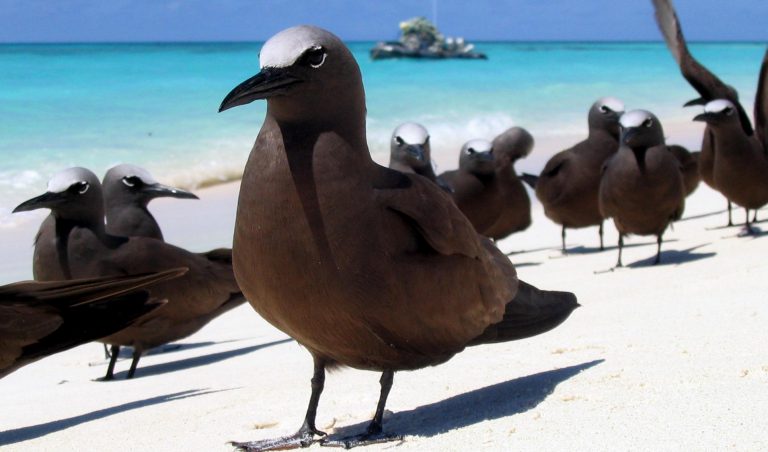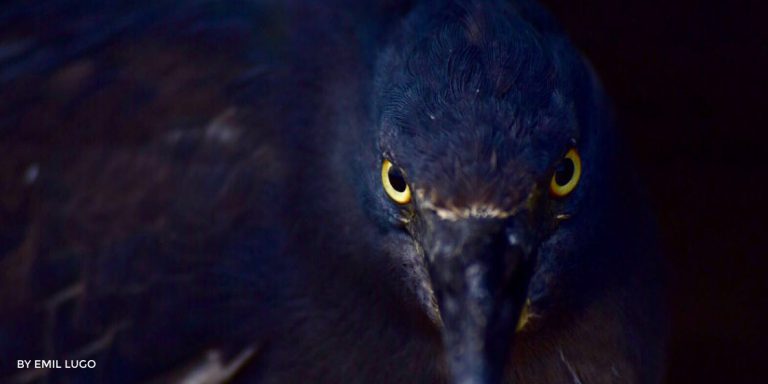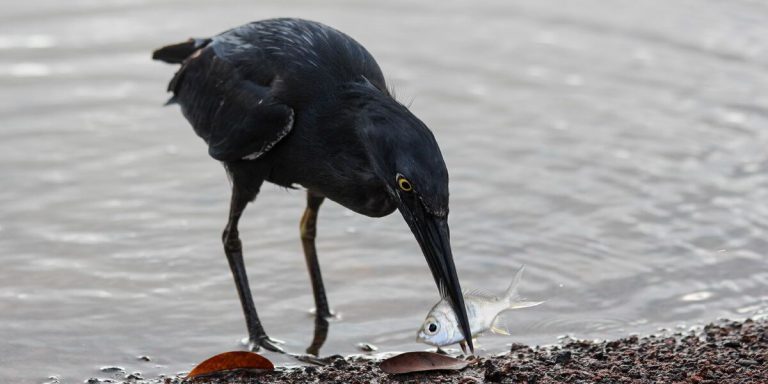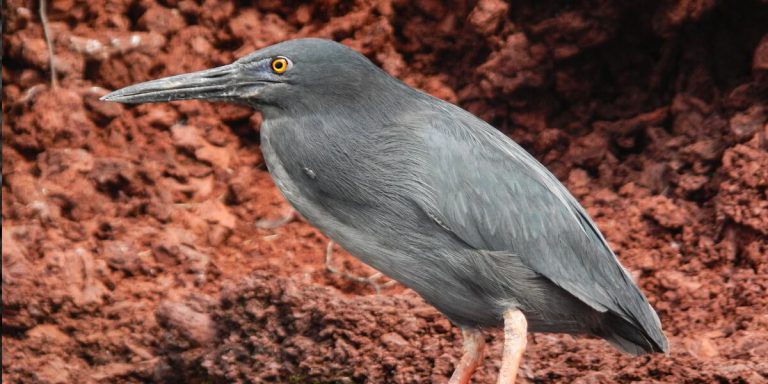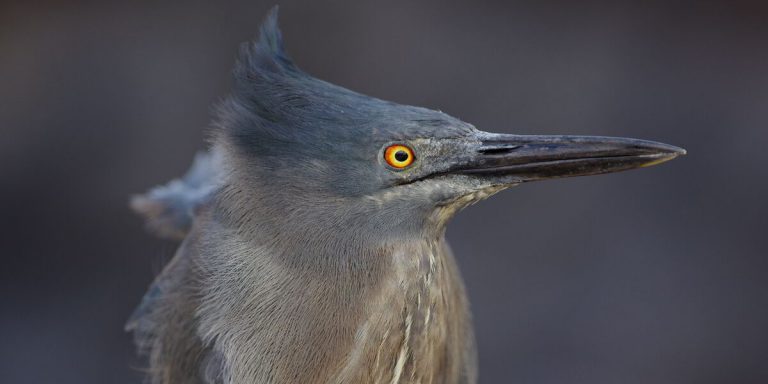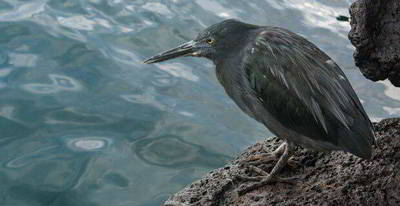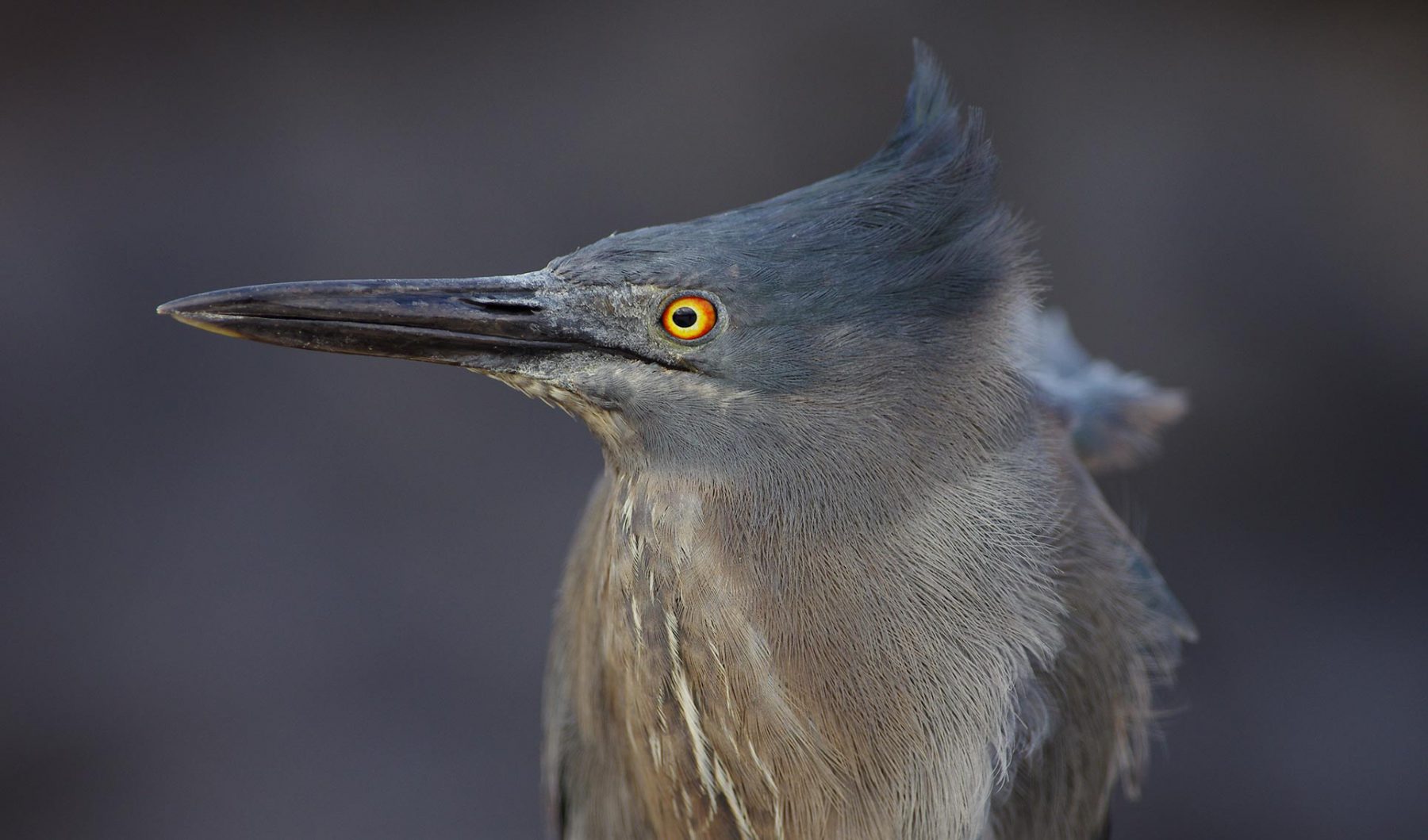
More about Lava Heron
The lava heron or Galapagos heron inhabits the intertidal zone and the mangrove areas, feeding at the open shoreline by slowly moving in the shallow waters or even diving into them. Apart from crab and fish, it also eats insects, lizards, and eggs. Its dark shades of gray help them to blend in with the rocks in order to hunt.
Males and females look similar, their feet, head, and eyes get brighter tones in courtship time and it is an opportunistic breeder. The mating months are September to March where females and males create a loud sound, show aerial displays and chase other herons in order to get a monogamous partner. They lay from 1 to 3 eggs in random safe areas of the lowlands around mangrove trees, that take around 22 days to hatch. They protect their territory by chasing intruders and making loud noises.
Due that their meals are on the ground, this bird prefers to walk instead of flying. They can be spotted walking or jumping along their feeding areas, found in all islands.
Places where you may see this animal:
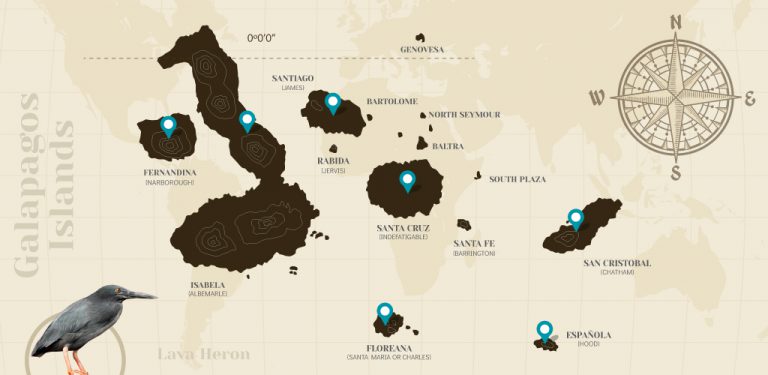
- Animal Group: Shorebirds
- Scientific Name: Butorides Sundevalli
- Animal Average Size: 45cm
- Animal Average Weight: 190-235 g
Galapagos Animals
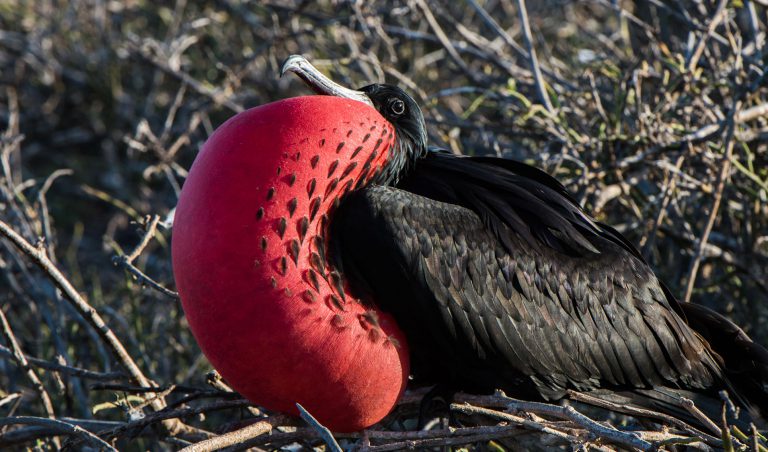
Frigatebird
View more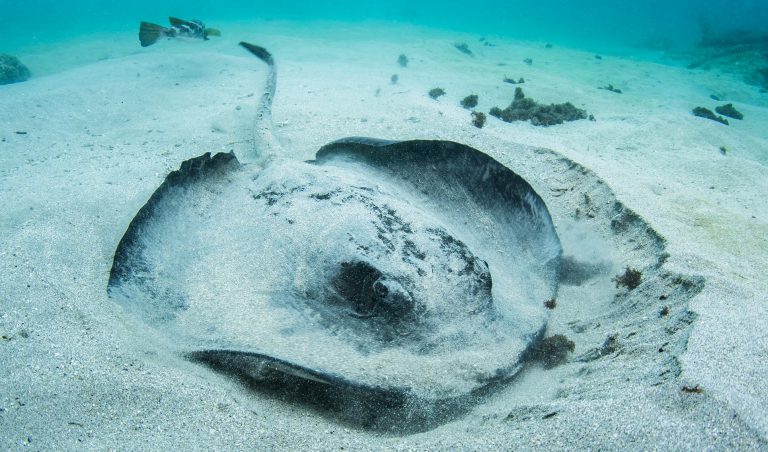
Stingrays
View more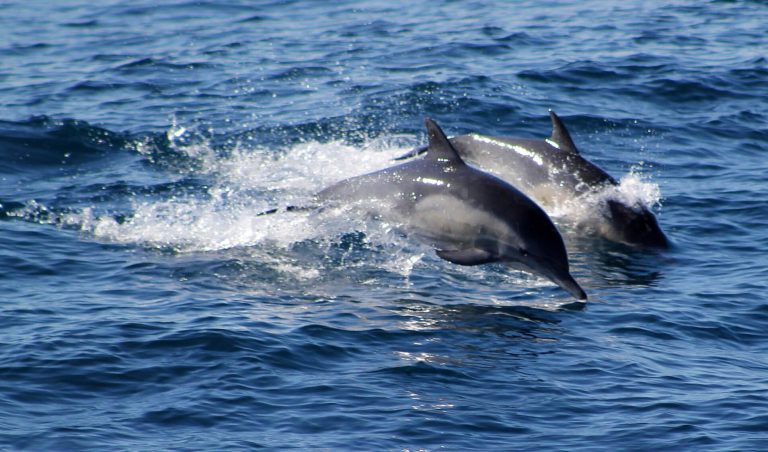
Dolphins
View more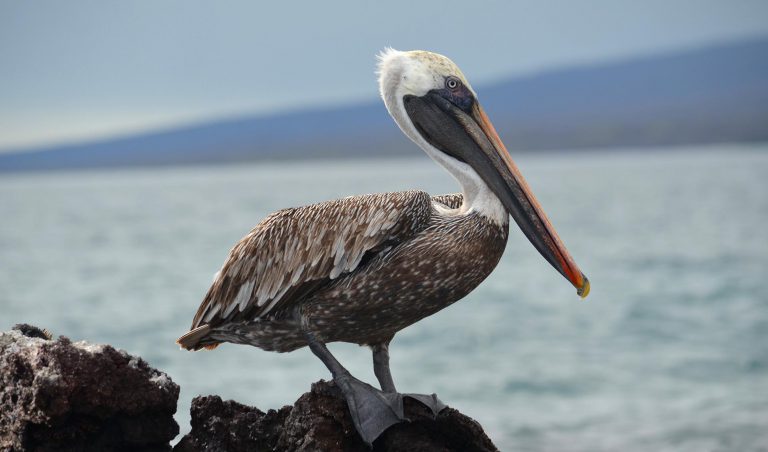
Galapagos Brown Pelican
View more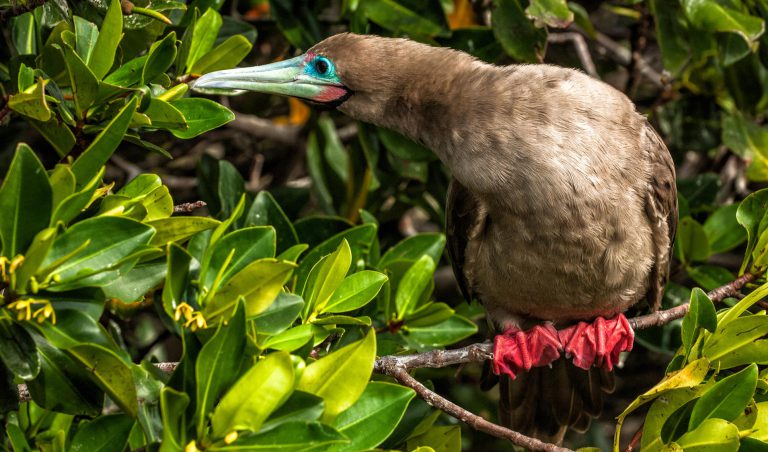
Red-Footed Booby
View more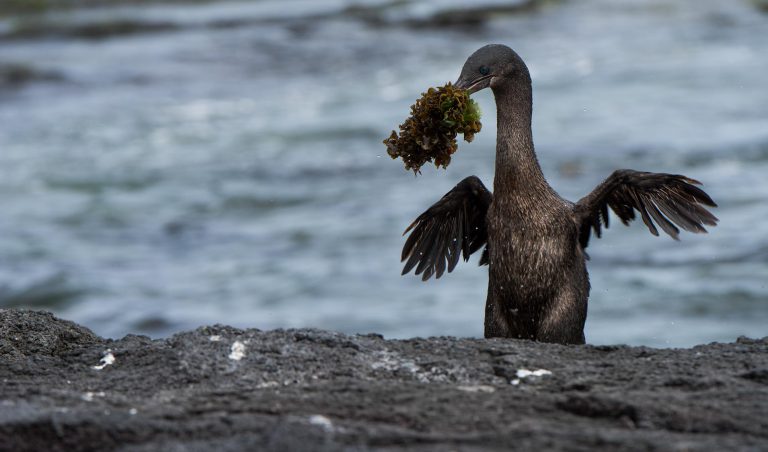
Galapagos Flightless Cormorant
View more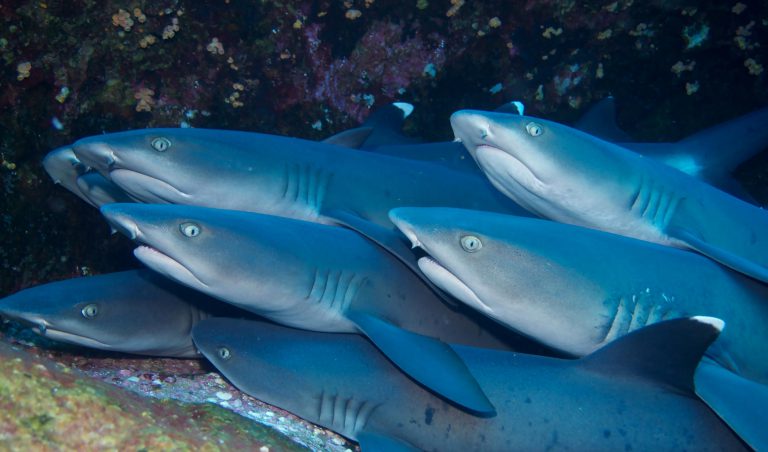
Whitetip Reef Shark
View more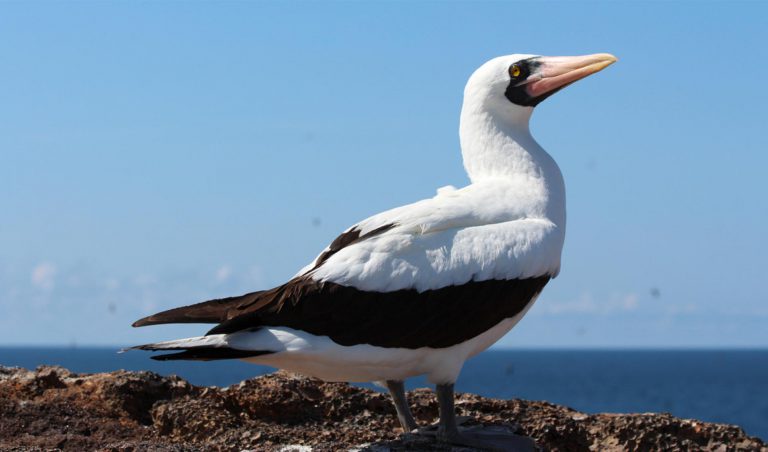
Nazca Booby
View more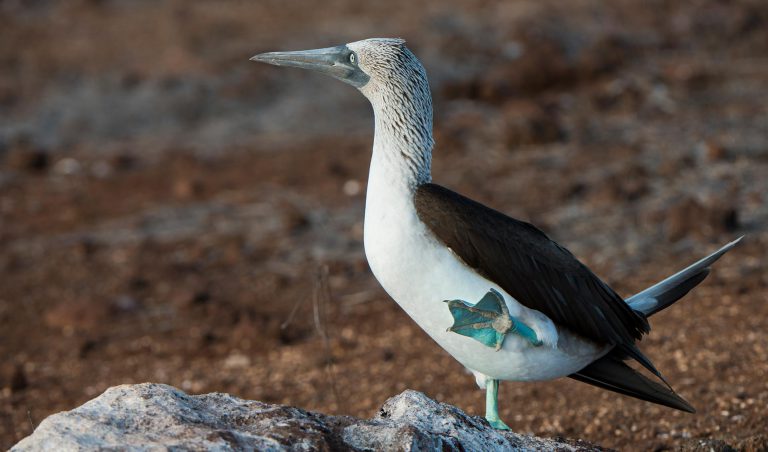
Blue-Footed Booby
View more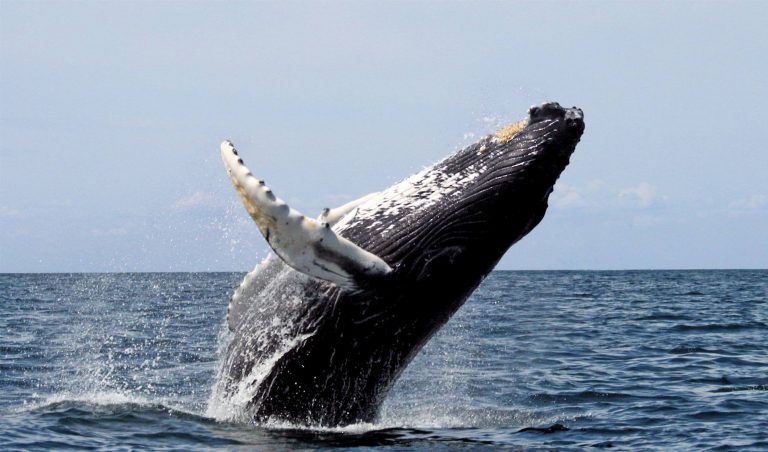
Whales
View more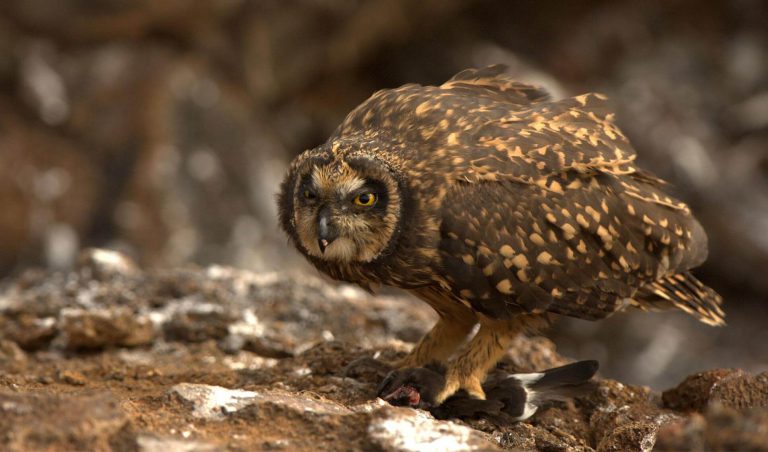
Galapagos Barn Owl
View more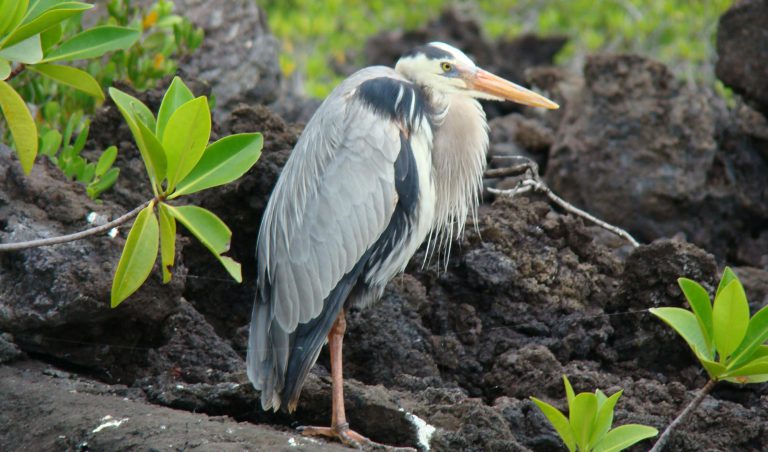
Great Blue Heron
View more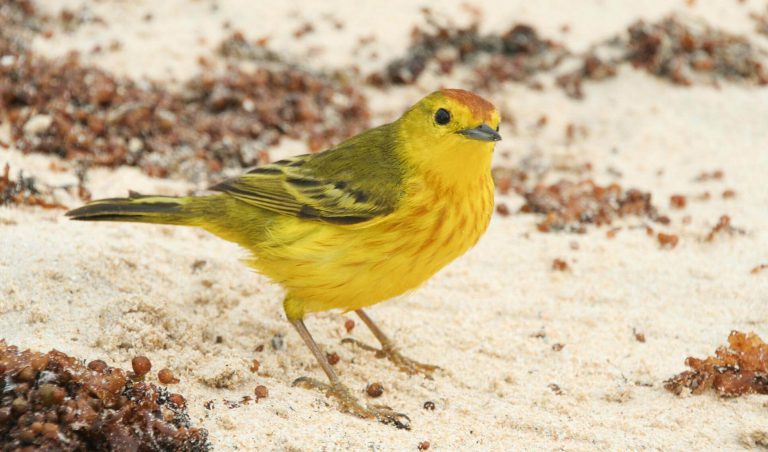
Yellow Warbler
View more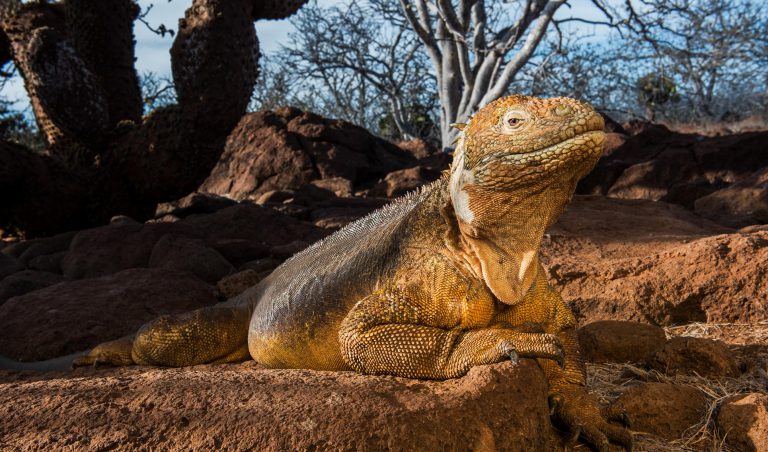
Land Iguana
View more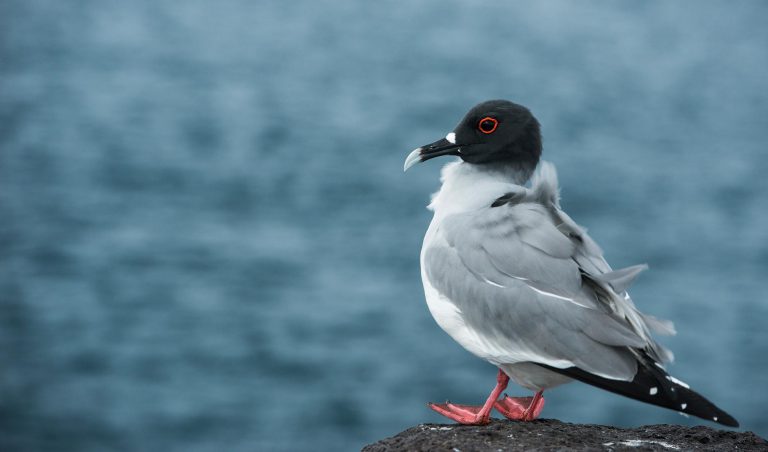
Swallow-Tailed Gull
View more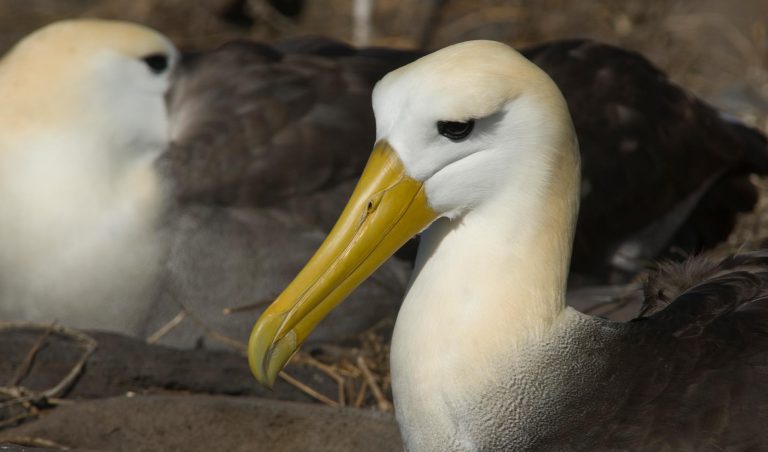
Waved Albatross
View more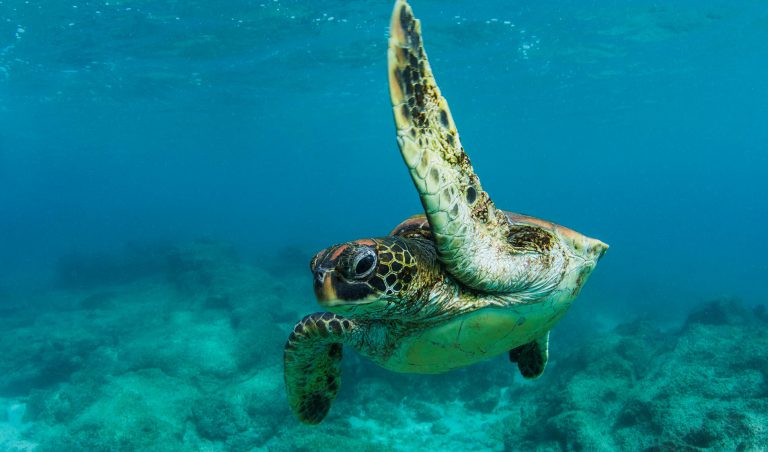
Galapagos Green Sea Turtle
View more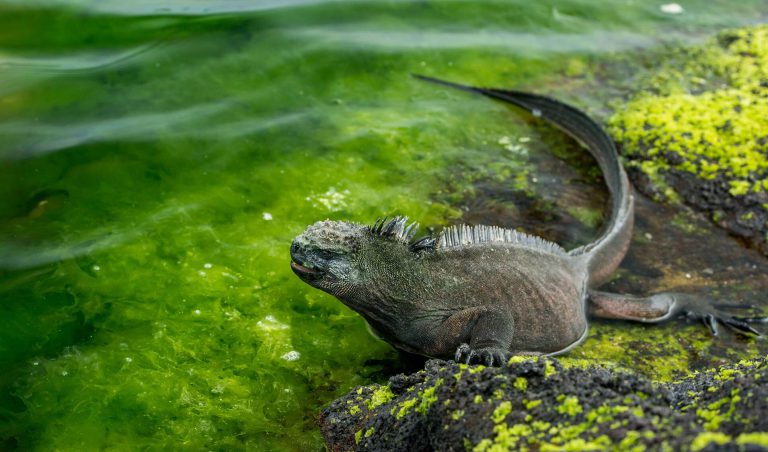
Marine Iguana
View more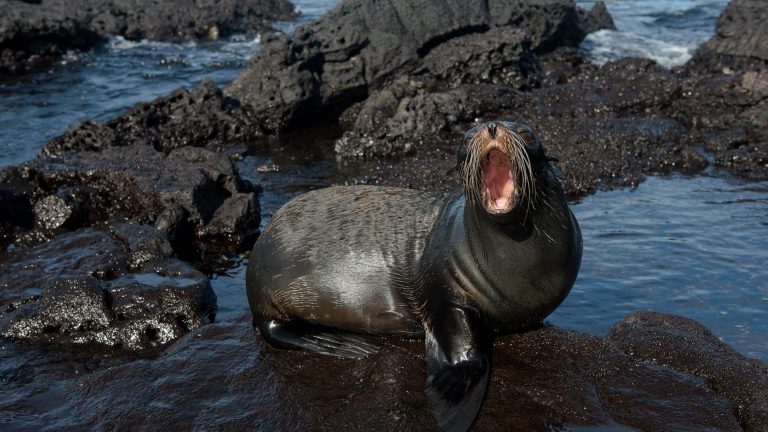
Fur Seal
View more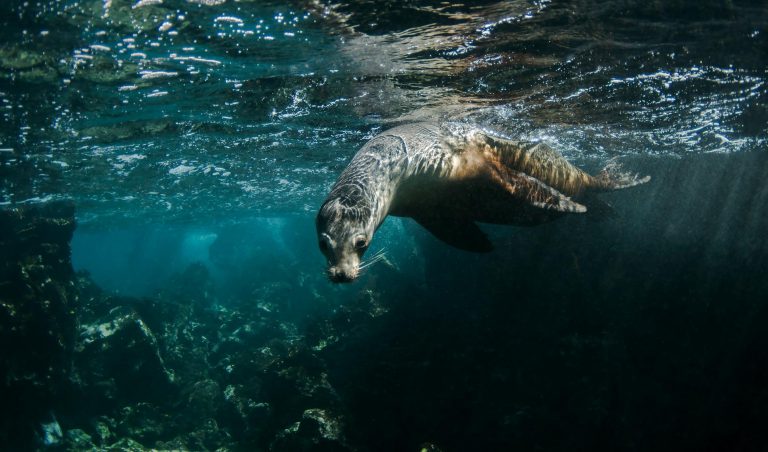
Sea Lion
View more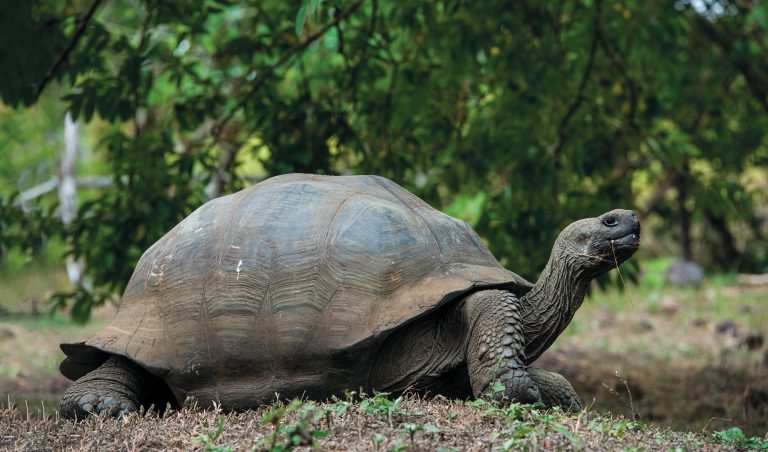
Giant Tortoise - Lonesome George
View more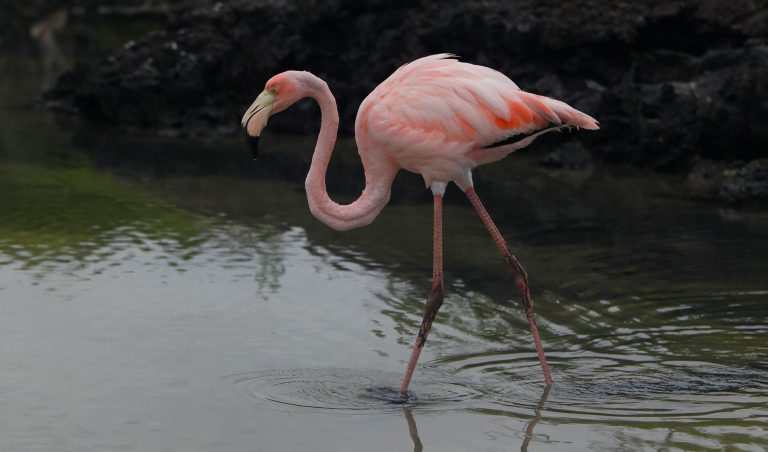
Galapagos Flamingo
View more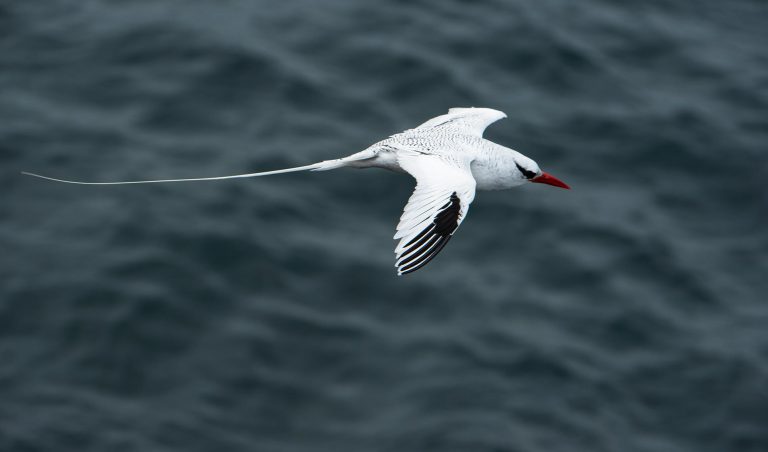
Red-Billed Tropicbird
View more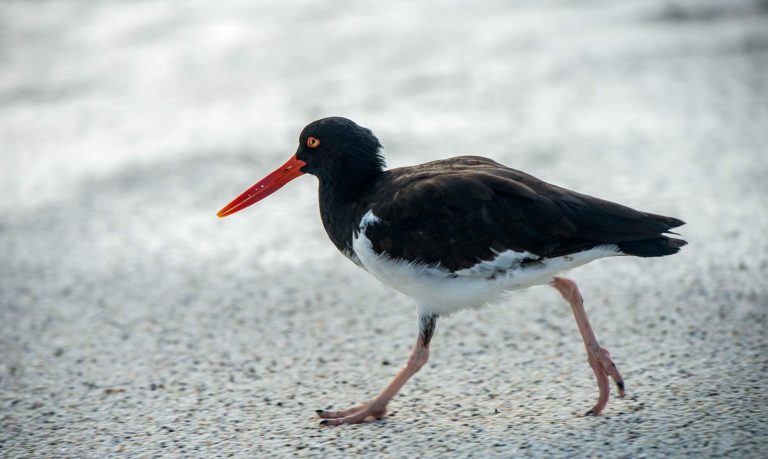
American Oystercatcher
View more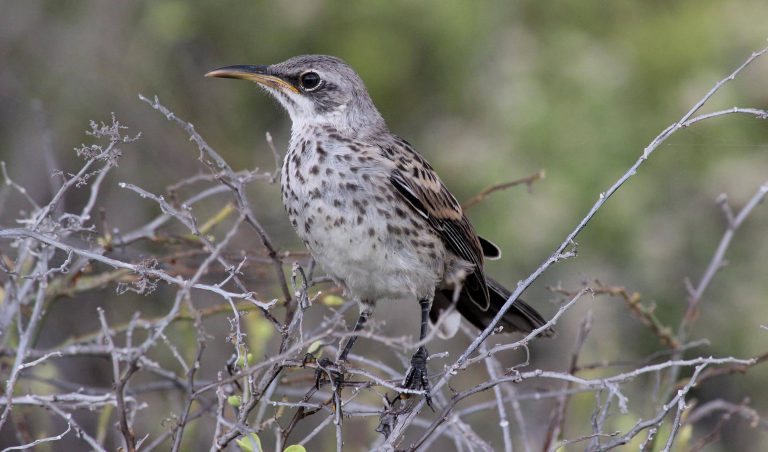
Mockingbird
View more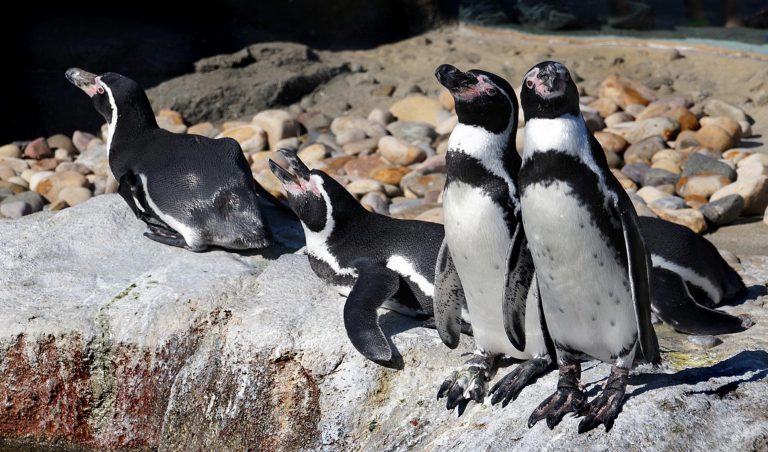
Galapagos Penguin
View more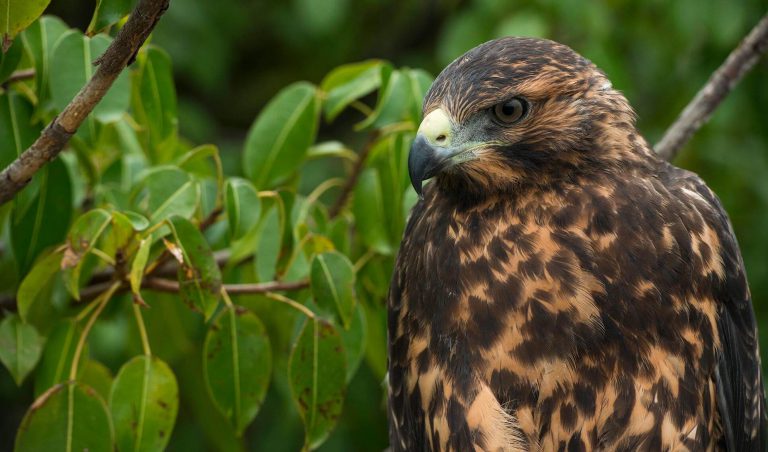
Galapagos Hawk
View more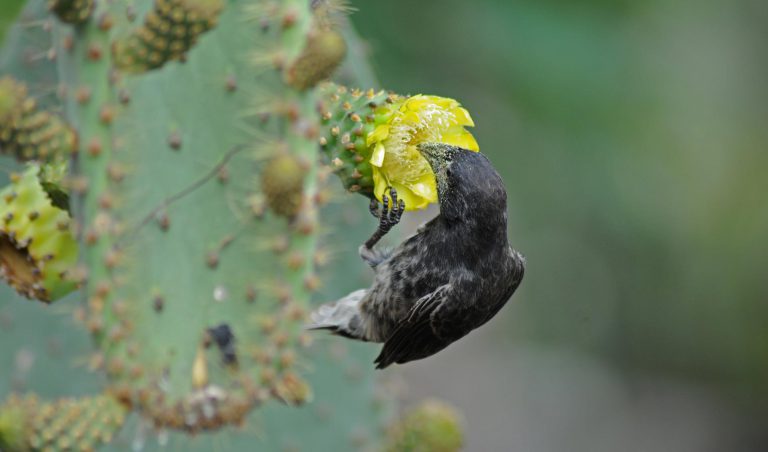
Darwin Finches
View more